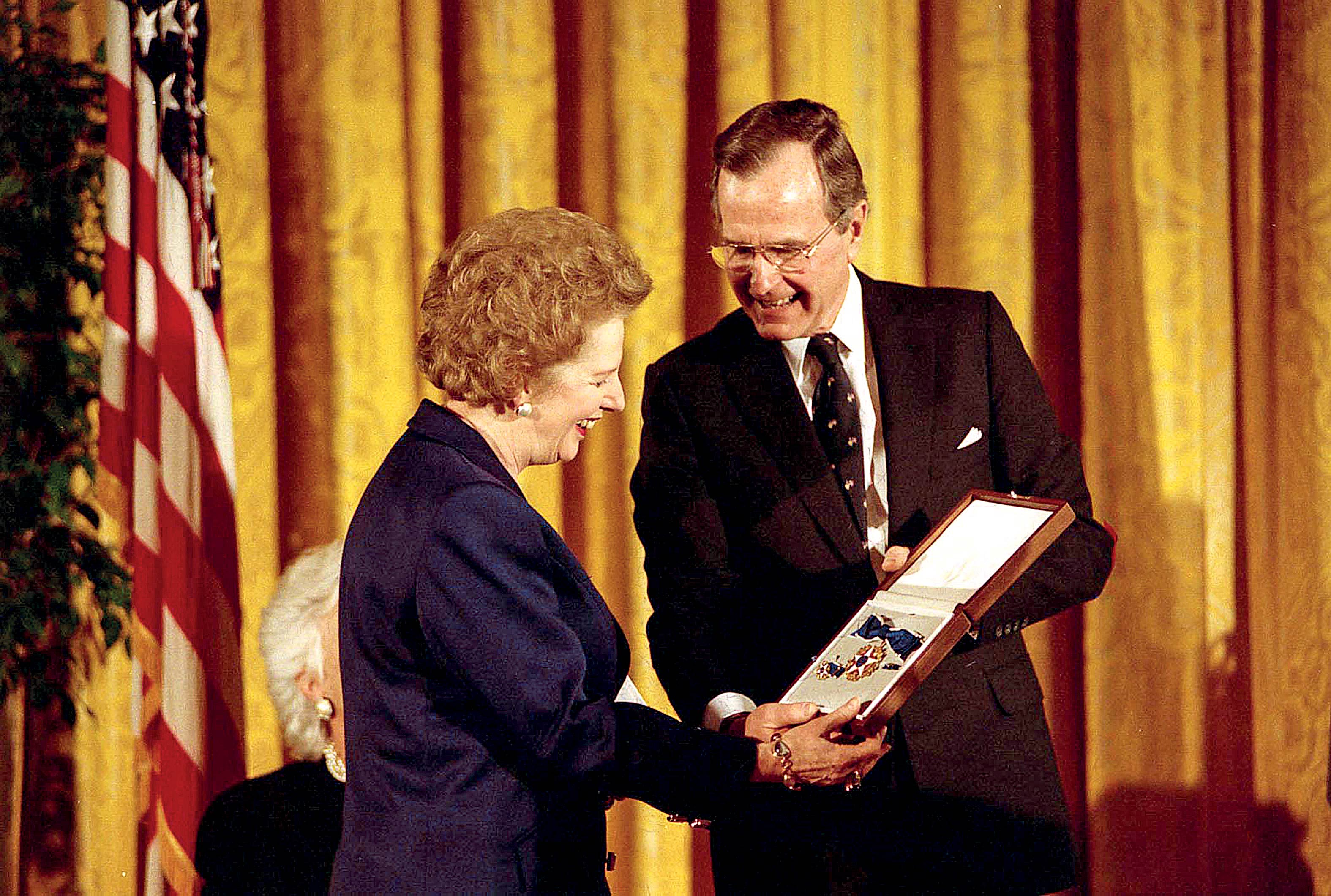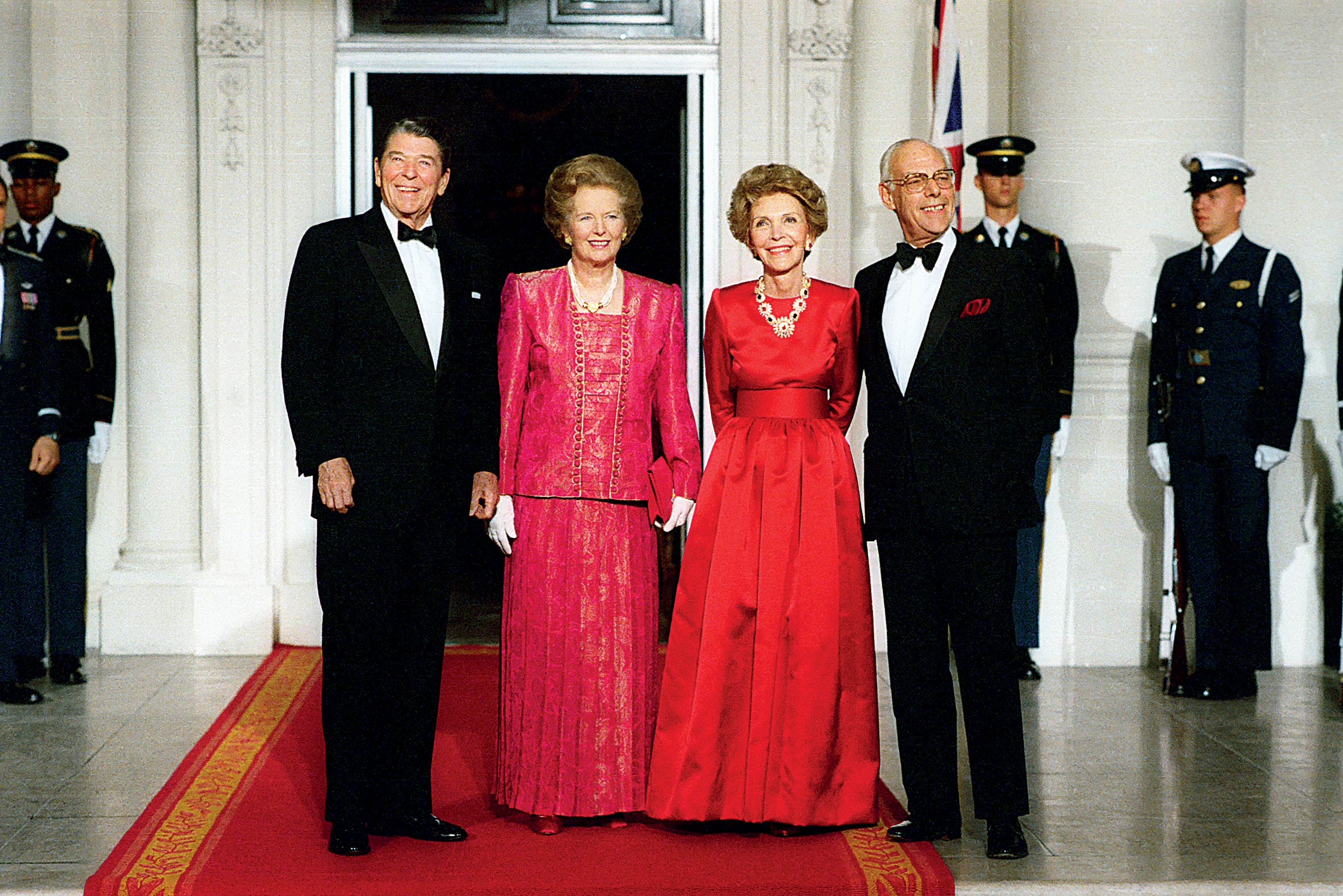Margaret Thatcher is an icon of British conservative politics and one of the most prominent personalities of the 20th century. Between 1979 and 1990, she was the first female British Prime Minister as well as an influential player in international politics. This October will be 97 years since her birth and April 2023 will mark 10 years since her passing.
Thatcher played a key part in the fall of the Soviet Union. She kickstarted the British economy and reinstated her country as a force in international politics. She had many supporters but many critics as well. The first group praised her for giving Britain back its global status, the second scolded her for putting the market above all else and pushing her policies in spite of mass unemployment.
Sick man and the Iron Lady
In times of oil crises and coal miner strikes, Thatcher was elected chair of the Conservative Party where she managed to push through her ideas on domestic and international policy. The United Kingdom was falling further into debt at the time, going as far as to earn the nickname “sick man of Europe”. “The Soviets put guns over butter, but we put almost everything over guns,” was a statement that led to the Russian tabloids dubbing her “The Iron Lady”. A name she, by all accounts, rather enjoyed, and one that eventually caught on.
Milk Snatcher
Instability in the United Kingdom peaked in 1979 – the government toppled, and the conservatives won the election. Margaret Thatcher became the first female British prime minister. Right away, she started battling the rampant state apparatus and growing inflation and implemented strict budget cuts. By cancelling free milk for school children under the age of eleven as part of these cuts, she earned herself a new nickname: “Milk Snatcher”. Even though her popularity suffered a major hit due to her closing down outdated factories, resulting in rapid unemployment growth, she refused to back down. Thatcher regained the voters' trust when the British economy rebounded in 1982. By cracking down hard on Argentina's invasion of the Falkland Islands, she covered up most of her failures in domestic politics, allowing her to enjoy her polling numbers for once.
Surviving an assassination attempt
The Prime Minister was not swayed from her ways even by the 11-month-long conflict between miners with their unions and the police, which ultimately led to the power of the unions diminishing. She took a similarly strong stance on the issue of the separatists from Northern Ireland. According to critics, her actions forced the peaceful Catholics to resort to violence. In October 1984, when the Irish Republican Army (IRA) detonated a bomb in a Brighton hotel during a Conservative Party conference, Thatcher escaped death by pure happenstance. Despite these events, she did not balk, going on to proclaim that terrorism would never win.
Holding to values
Margaret Thatcher's characteristic qualities in politics were her confidence and perseverance. She was unyielding in the pursuit of her goals and trusted in her own judgement. “Being powerful is like being a lady. If you have to tell people you are, you aren't,” she liked to say. Despite knowing that her unrelenting approach was opposed by many, she was almost always able to do things her own way. Many of her supporters admired her for her decisiveness, but she was faced with belligerent criticism from the left following the reform of the British social system. Thatcher never managed to fully transform the country economically. Discord rose even from within her own party when it came to certain budget cutbacks. One of the Prime Minister's goals was to dampen the influence of unions, which she managed to bring about in the end. That, in turn, led to increased unemployment numbers in the millions.
Reagan's kindred spirit
Margaret Thatcher built her policy on cutbacks in the state administration and an anti-Soviet stance. Her foreign policy was aimed towards the United States and she maintained good relations with Ronald Reagan. She found a kindred spirit in the American President. They shared not only an aversion to communism but many viewpoints on matters of economy as well. She was happy to see that he was not replaced by a democrat when the time came. Her relationship with George Bush Sr. was nowhere near as symbiotic, however. Thatcher later even connected with Mikhail Gorbachev who unsuccessfully tried to reinvent the crumbling Soviet empire.
Criticism of Kohl
In European politics, she tried to postpone the unification of Germany after the fall of the iron curtain. “Any attempt to discuss postwar borders or German unification would undermine mister Gorbachev's position and open a pandora's box of border squabbles in all of Central Europe.” She said these words at a meeting in Paris on November 18, 1989, where French President Mitterand and German Chancellor Kohl were also present. She was rather critical of the German Chancellor. Apparently, in a discussion with French Ambassador to the United Kingdom, Luca de La Barre Nanteuil, in the spring of 1990, she said that “Kohl is capable of anything.” The Iron Lady never accepted the German unification. She was adamant that Germany stay part of NATO, however, to make sure the Soviet Union did not get backed into a corner, and that the Germans should seek agreement with the Poles on immutable borders.
Betrayal with a smile
In 1987, Thatcher defended her seat as prime minister for the third time, but only two short years later, her own party turned against her. It did so due to her support of increasing the power of European authorities – something the Conservative Party did not agree with. The suggestion of her fellow party members that she resign was later described by Thatcher as a “betrayal with a smile on their faces”. Throughout her political career, she was faced with discord within her own party, which came to a head during her third term. Faced with the protests that gripped London in 1990 due to the so-called poll tax, Thatcher understood that her position as chair of the Conservative Party was in danger and so chose to step down of her own accord.
Retirement of a personality etched in British and world history
She remained politically active, however. In 1992, she was made a life peer, being granted the title of Baroness of Kesteven, which meant she was a lifelong member of the House of Lords. Margaret Thatcher's health steadily declined since 2002, leading to a gradual stepping down from all her activities. She nevertheless remained a prominent personality in both British and world history. In her role as prime minister, she not only helped reform the British economy and social system but also gave the United Kingdom back its status as one of Europe's most developed countries.

President George Bush awarded the former British prime minister the Presidential Medal of Freedom in the White House on March 7, 1991.
Margaret Hilda Thatcher, Baroness of Kesteven, née Roberts, was born on October 13, 1925, in Grantham (county of Lincolnshire).
After graduating from Oxford, she started working in a plastics plant and became involved with the Conservative Party.
#She made her way into the history books as an unrelenting opponent of unions as well as an advocate of privatizing large state-owned enterprises. It was exactly these policies that helped her guide her country through an economic crisis.
In the 1960s, Thatcher criticized the Labour government for the high taxes it imposed and fought for the rights of city-dwelling tenants to be able to buy their homes from the town administration.
When she died on April 8, 2013, not all British people were saddened by the news. Many still see the longest-serving prime minister in Britain's modern history in a negative light.
Her life story earned a film adaptation in 2011. Meryl Streep was the lead in this British biopic, earning an Oscar, Golden Globe, and BAFTA Award for her role. The movie premiered in the Czech Republic on March 1, 2012. It is said that Margaret Thatcher never even saw it.

Margaret with American President, Ronald Reagan, at a White House dinner in November 1998.
Growing fond of Havel
Margaret Thatcher was very fond of Václav Havel, which became evident during her visit to Czechoslovakia in 1990. She said she was very impressed with him. During their talks, they touched on a variety of topics surrounding international as well as domestic Czechoslovak politics. They shared the same views on the Persian Gulf situation. Except, of course, for the fact that Czechoslovakia did not have a navy as opposed to the British. Increasing the extent of the cooperation between the two countries, especially in terms of trade and culture, was also discussed. Thatcher also met with the former Slovak Prime Minister, Vladmír Mečiar. The rumors of Czechoslovakia splitting up had travelled all the way to the United Kingdom. Vladmír Mečiar, however, assured Thatcher that Czechoslovakia would remain a federation.

Protests against the poll tax on the last day of March 1990, at London's Trafalgar Square.